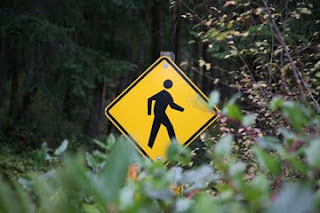Colt’s mom, Pam Kohler, recently called me and said that Colt had phoned her twice in the last week. Colt, being a good son, calls him mom from the road (or the forest, or the sky, or space, or 20,000 leagues underwater… wherever the hell he is at the time). So the question is: With all the CSI super crime-fighting abilities of our federal, state and local law enforcement, why haven’t they simply homed in on him?
I spoke with a source in law enforcement who has run wads of wiretaps in cooperation with the FBI against the Mafia. Here’s what he has to say [any text in brackets are my comments, and my speculative conclusion is at the bottom]:
[Oh, and by the way: Colt’s mom says he’s fine, doing great, relaxed and happy].
“The technology does exist to "Ping" a cell phone which is LE [law enforcement] talk for finding the exact location, or at least within 500 feet of a cell phone while in use. The problem is the components are very expensive (roughly 250K per unit) and not all law enforcement agencies possess it, especially not local forces like the county sheriffs who are chasing Colt. Both the FBI and US Marshall's Fugitive Squads have it, but even in these agencies the equipment is not in widespread use and is certainly not stored in each one of the field offices.
“Another problem [for the police] is, in order for the equipment to be effective it must be within a certain radius of the cell phone while it is in use. So, instead, most LE agencies rely on "tower" information obtained from the carrier, which as the term indicates, identifies the location of the tower that the cell phone is transmitting from. But, obviously, that is after the fact, and in most jurisdictions, that information can only be granted by the equivalent of a court order based on probable cause.
“Land lines are a different matter. Assuming that the Feds or a local-federal task force are up on a wire "tap," that means they have met the legal requirements of probable cause — which has to be freshed and refreshed every 15 days — and they’ve fulfilled the requirements of "minimizing" [this is legal talk for making sure law enforcement doesn’t listen to privileged conversations between a person and his lawyer, or any conversations not directly related to a crime] they’ll have placed a trap and trace, and DNR (Dial Number Recorder) which automatically and immediately provides the number from which the caller is calling from. From that information, they can derive the location of the caller.
“Again, obviously, the subject is using a mobile and for a good reason....it is mobile.
“Now if the phone is "GPS enabled" which most cell phones are ... Law enforcement can use GPS technology to triangulate and determine the location. Problem is that the GPS enabled option is easily disabled by the possessor, thus eliminating that option.”
So… back to me now. We all assume that Pam’s phone is tapped. Law enforcement, understandably, won’t comment on that. But if so, and Colt ever called from a land line, he’d already be in jail. So we assume he’s using a cell phone, or probably a series of cells, or pre-paid cells or a "soft phone" or number masking or "spoofing" services. A source told me that Colt does know how to turn off the GPS tracking on a cell phone. GPS-equipped cell phones have a setting that allows you to set it to “911-only” or “location on.” The 911 setting lets the police know where you are if you’re in trouble and call 911 — a very good thing if you’re ever in an accident or a fire or get lost. The “location” setting, though, lets everyone know where you are at all times… That’s how they’re eventually going to sell advertising to you for every business you drive by.
Even with GPS turned off, a cell phone will still leave tracks via the towers it accesses to make a call. Naturally, though, a moving cell phone is a moving target…
So, in short: With the limited resources being used to chase him (see: Why Can’t They Catch Colt Part II, coming up soon), Colt has apparently found ways to cover his tracks as long as he stays smart and careful. And as one of the sheriffs chasing him told me: “I happen to think that he’s probably a pretty darn bright kid.”

